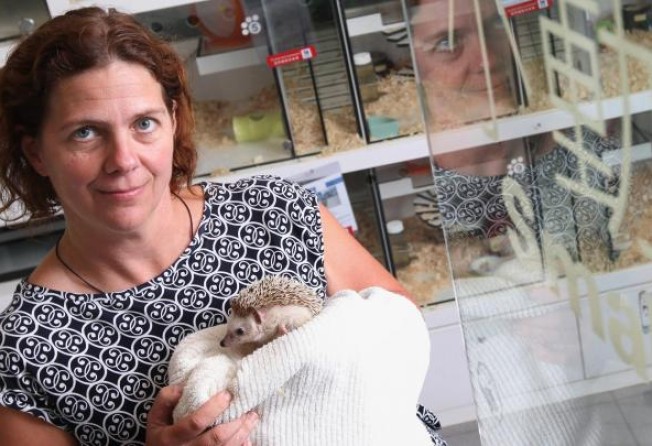Rise in pet owners discarding exotic animals
Snakes, lizards, hedgehogs and dormice are among the unusual animals found abandoned by the SPCA after people who keep them lose interest

A rising number of exotic animals have been found abandoned on the street and even in an MTR station after owners who bought them out of impulse later lost interest, according to the Society for the Prevention of Cruelty to Animals (SPCA).
Last month a baby hedgehog - deemed by the SPCA as unsuitable to be kept domestically in Hong Kong - was found outside a private veterinary clinic in Mong Kok, and two terrapins were abandoned inside Tseung Kwan O MTR station.
"We are seeing more and more exotic animals in recent years," said Dr Fiona Woodhouse, deputy director (Welfare) of the SPCA. "At first it was a few chinchillas, then we started to see snakes and other reptiles, ferrets, hedgehogs, and even recently East Asian dormice.
"People followed the trend of keeping unusual species. But a lot of them don't understand some of these animals live in very specific environments. Reptiles, for example, require particular temperatures and humidity."
Another problem is that many people are unaware that most exotic pets are wild animals, not companion animals.
"Often people buy exotic animals from questionable sources and try to keep them as pets in a domestic environment," Woodhouse said. "Having been kept in the wrong living environment on the wrong diet, many are quite sick by the time we find them."
In the first half of this year, the SPCA received three hedgehogs, four snakes, four lizards, 10 birds, five turtles and two East Asian dormice.
Some had been kept inside a cage or box. Some were in pairs.
Last year SPCA found new homes for 650 animals that were not cats or dogs. Of these, 80 per cent were more common species such as rabbits, hamsters and guinea pigs, while the remainder were exotic types, such as hedgehogs and snakes.
Although those exotic animals are open for adoption as long as they are not endangered species or prohibited by the law, the SPCA has set a higher screening standard for adoption. "For instance, we would look for people who have experienced in keeping those exotic species and require them to have all the necessary settings at home for the animal before we approve the adoption," Woodhouse said.